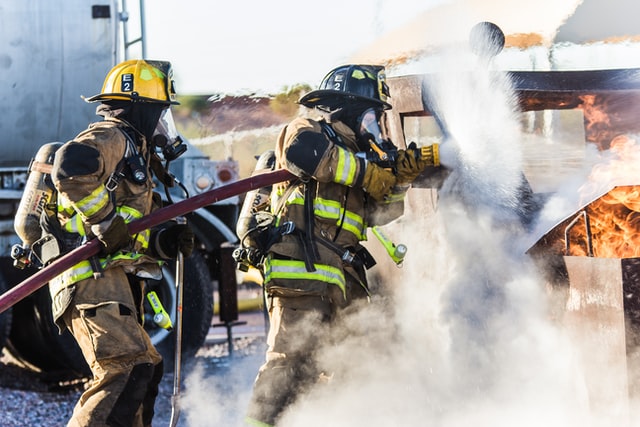
Becoming a Firefighter in Canada: 2025 Minimum & Preferred Requirements (Full Guide)
Updated using data from 30 municipal firefighter job postings across Canada as of August 28, 2025.
If you’re researching how to become a firefighter in Canada, understanding the minimum and preferred qualifications is the most important first step. Municipal fire departments across the country generally follow similar hiring standards, and the most competitive applicants exceed the minimum requirements by a wide margin.
This 2025 guide breaks down exactly what you need to meet — and what helps you stand out — when becoming a firefighter in Canada.
🔥 Minimum Requirements to Become a Firefighter (2025)
To be competitive in municipal hiring, candidates must meet all of the following baseline requirements.
1. General Eligibility Requirements
Most fire departments in Canada require that applicants:
-
Have no criminal record (unless pardoned under the Criminal Records Act of Canada)
-
Are legally entitled to work in Canada (citizen, permanent resident, or landed immigrant)
-
Are at least 18 years old
-
Can clearly understand and communicate in verbal and written English
-
Have completed Grade 12 or equivalent approved by the Ministry of Education
These form the basic foundation for becoming a firefighter in any province.
2. Required Firefighter Certifications
To meet national standards, candidates must typically hold:
-
NFPA 1001 Firefighter I & II (accredited institution)
-
NFPA 1072 Hazardous Materials Awareness & Operations
-
First Responder / EMR Certification
-
Must include: HCP-level CPR, AED, and BLS
-
These certifications prove you can perform structural firefighting, hazardous materials response, and medical care — all core components of the job.
3. Driver’s Licence Requirements
Firefighter candidates must also demonstrate safe, competent vehicle operation:
-
Valid Class D with Z endorsement (Ontario) or provincial equivalent
-
Clean driving record — 3+ demerit points usually makes applicants ineligible
-
Pleasure Craft Operator Card, commonly required for water-related operations
Driving heavy apparatus safely is a key component of becoming a firefighter, especially in urban departments.
4. Screening & Medical Requirements
Before hiring, departments require:
-
Criminal Record Check
-
Vulnerable Sector Screening
And proof of immunization for:
-
Measles (Red), Mumps, Rubella
-
Tetanus/Diphtheria (within 10–12 years)
-
Hepatitis B
-
COVID-19 (fully vaccinated; booster preferred)
These ensure candidates can safely perform the job and work with vulnerable populations.
5. Firefighter Testing Requirements
Many departments—especially in Ontario—require:
-
OFAI Candidate Testing (stages 1–3)
or -
Equivalent provincial firefighter testing
These standardized tests evaluate physical ability, aptitude, medical knowledge, and firefighter task proficiency.
Preferred Qualifications When Becoming a Firefighter (Highly Competitive Assets)
While minimum requirements get you in the door, preferred qualifications significantly increase your chances of being hired.
1. Education & Academic Credentials
Highly competitive applicants often have:
-
Previous part-time or full-time firefighter experience
-
Firefighter Pre-Service Education & Training Program
-
Fire Protection Engineering Technician/Technology Diploma
-
University degree, diploma, or relevant certificate
This additional education signals strong preparation for becoming a firefighter in a modern fire service.
2. Advanced NFPA Certifications
Specialized training is a major advantage:
-
NFPA 1041 Level I – Fire Service Instructor
-
NFPA 1031 – Fire Inspector
-
NFPA 1035 – Fire & Life Safety Educator
-
NFPA 1002 – Driver/Operator
These certifications help departments fill multiple operational and educational roles.
3. Technical Rescue Training (Major Asset)
The most competitive candidates often have technician-level courses in the NFPA 1006 suite, such as:
-
Ice Water Rescue
-
Surface Water Rescue
-
Swift Water Rescue
-
High Angle / Rope Rescue
-
Confined Space Rescue
-
Trench Rescue
-
Auto Extrication
-
Tower Rescue
These skills are especially valued in departments with diverse rescue needs.
4. Valuable Backgrounds & Practical Experience
Fire departments consistently value applicants with:
-
Mechanical, electrical, construction, plumbing, HVAC, or other trades experience
-
SCBA or SCUBA training
-
Experience in:
-
Fire suppression
-
Military or Coast Guard
-
Heavy equipment or large vehicle operation
-
Paramedic or emergency medical services
-
Mechanical/technical roles
-
This hands-on expertise is directly applicable to the demands of the job.
5. Soft Skills, Leadership & Community Experience
Candidates stand out when they demonstrate:
-
Coaching, teaching, mentoring, or counselling experience
-
Fluency in a second language or sign language
-
Occupational Health & Safety training
-
Mountain/rope climbing skills
-
Ski patrol or other emergency service certifications
-
Strong, long-term volunteer involvement (year-long commitments are most valued)
These attributes show leadership, teamwork, communication, and community engagement — all essential for becoming a firefighter.
Final Thoughts: Becoming a Firefighter Requires Preparation and Persistence
Municipal fire departments hire candidates who not only meet the minimum requirements but clearly exceed them. With strong NFPA training, medical certification, safe driving credentials, technical rescue skills, and community involvement, your chances of becoming a firefighter increase dramatically.


